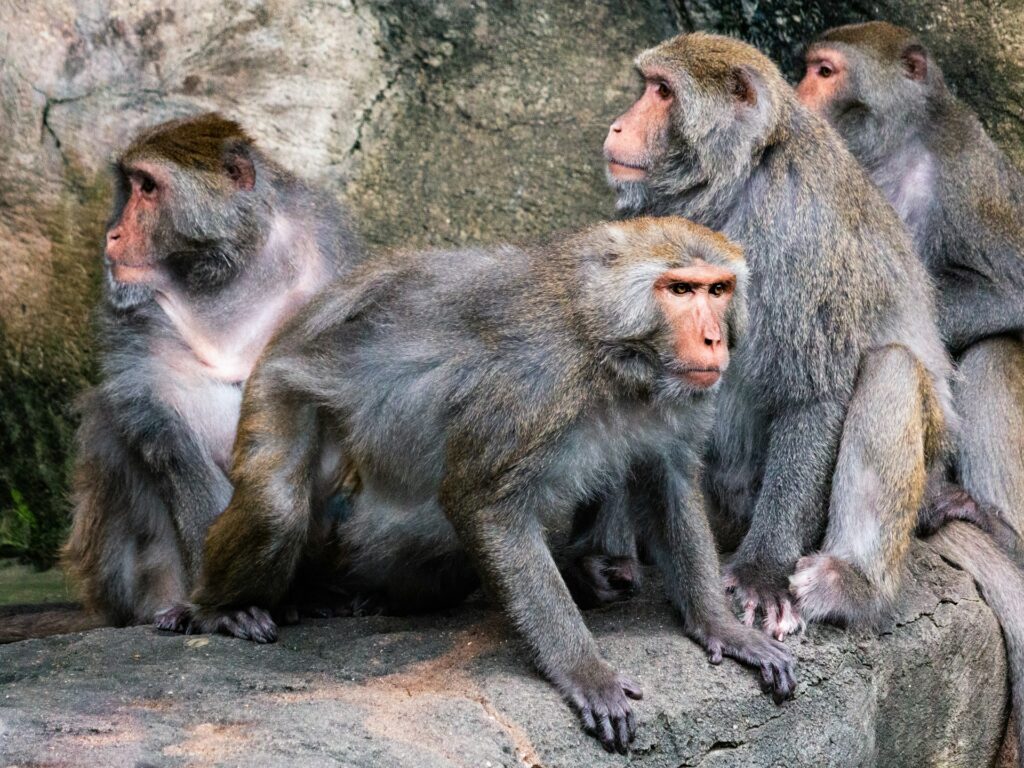A snake slips into a bird’s nest and devours her eggs. Is the snake good or bad? Which one of these appraisals is the ultimate truth?
Words like “good” and “bad” and “truth” are words that we use without thinking. We’re not thinking about these words because we take their meanings for granted. We make assumptions that whatever we understand these words to mean is the accepted and universal standard.
The snake’s actions are likely motivated by some hard-wired survival instinct, probably the same instinct that left the eggs unguarded by the parent bird searching for food. This melange of overlapping needs creates opportunities, both apparent and obscure. One obvious opportunity is a meal for the snake. More subtle, perhaps, is the possibility of Darwin’s natural selection at play, favoring the propagation of those birds able to stay their hunger long enough to protect their eggs from starving serpents.
How will all of this play out in the long term?
Tough to say.
Turns out the “good,” “bad,” and “truth” of a thing are slippery considerations at best. This scenario hints at the perils associated with our uncritical usage of these terms. As an example, environmental policies are influenced by the sentimental ascriptions of these value judgements by the voting public with potentially disastrous results.
And that’s because our perceptions are too finite to arrive at anything definite.
Beliefs

We don’t know what’s true and neither do you. Despite this, we still need to find a way to get along in this world and with each other, and maybe we can agree on this as a working definition of what it is to be “good.”
We here at Dust and Tribe are not moral relativists. We are Muslims. It’s a belief system that we subscribe to and that requires us to adopt the moral standards of this greatest of faith traditions. That’s not always comfortable or intuitive, but it’s effectively the price of admission.
We are also the citizens of a pluralistic state. America plays host to people with every conceivable manner of cultural, ethical, and philosophical outlook. This requires a certain level of diplomacy in navigating the relationships we will inevitably have with people who do not subscribe to Islam as their guiding ethos. Where divergent, we do not see their values as in any way comparable to ours. It wouldn’t make sense for us to hold the non-Muslim as morally equivalent to our brothers and sisters in faith.
After all, we are Muslims because we believe it to be a better way.
We didn’t say that it is a better way.
We said we believe it to be so, and our diplomacy turns on this. In a heterogeneous pluralistic society, we must all understand that others do not believe as we do. They are wrong, of course, but that is irrelevant to the question of social cohesion which is an obvious requirement in any functional society. Others may have a different strategy, but ours is simply to minimize engagement with those who do not believe as we do. And where this is not possible or practical, the move is to avoid areas of potential disagreement. Critical to this approach is maintaining respect and compassionate curiosity.
This is actually much harder to do for those of us convicted in the idea of an ultimate, universal, and objectively verifiable “truth.” Although believers, and invested ones at that, we don’t align with this understanding of things and we’re about to explain why, but first a caveat:
This is the part where we get into some dicey definitions. Everything that follows is obvious, but maybe a bit uncomfortable when articulated, perhaps with great potential for existential confusion.
If you’re Muslim and your faith is weak, tread carefully.
Subjective Creatures

We are not capable of objectivity.
Every bit of information we receive is filtered through fallible sensory organs and mental processing compromised by, at the very least, trauma, bias, and a fair amount of social pressure. In this brave new world of AI and deep fakes, we are acutely aware of the limitations of vision to relay objective facts. We mishear things all the time. If you’re married, you can ask your spouse for confirmation. If not, ask your parents.
And even in those instances where we somehow receive information uncorrupted, our interpretation will always be highly subjective, deeply influenced by a lifetime of experience and idiosyncratic cognitive patterns. This is our argument for why science is not nearly the rational standard it is purported to be. As a discipline, it is subject to all of the interpretive errors and factionalizing zealotry of any organized religion.
Our inescapable subjectivity is why the greatest religious teachers in our collective human history, whether Moses, Jesus, or Muhammad, were summarily rejected by the majority of people at the outset of their respective missions, may the peace and blessing of God be upon them. It did not matter that they came with the “truth” as deputies of God Most High. Most folks were unconvinced.
And the nail in the objectivity coffin (for the Muslim, at least) is God’s statement in the Qur’an:
You surely cannot guide whoever you like (O Prophet) but it is God Who guides whoever He wills, and He knows best who are (fit to be) guided.
Q28:56
If objectivity existed as a human capacity, “truth” would be immediately identifiable by one and all and not subject to the selective guidance of God Most High. Despite this, we still have a ridiculous number of people out there working feverishly to “convince” others of some “truth” or another. At best, it’s a waste of energy. Worse, it’s terribly annoying and very likely responsible for a great many people rejecting a reconsideration of their philosophical and spiritual underpinnings simply because of just how alienating this approach can be.
This is why respect and compassionate curiosity is difficult for the person who refuses to acknowledge the absence of an objective faculty in his fellow man. He becomes frustrated that others do not see the “truth” as clearly as he does. He ascribes this inability to some deficiency in their person, with this characterization immediately leading to a loss of respect. Compassion evaporates in the steam of exasperation, and curiosity was never there to begin with.
Patterns

And while we don’t believe it possible to leverage a non-existent objectivity in the ascertaining of “truth,” we do believe in the existence of subjective patterns and in the human capacity (need, really) to create meaning out of those patterns. When we read that “it is God Who guides whoever He wills,” this squares nicely with the patterns that we’ve personally encountered.
The majority of the world is not formally Muslim. We can appreciate this notion of Divine Selection as an explanation that gives meaning to the pattern. There are enough of these correlations between our subjective experiences and Islamic teachings that we’ve chosen to adopt it as our way of believing, our way of understanding our existence and the world around us.
Others have different experiences and they build different patterns. We respect that. There exists within that obvious reality tremendous opportunity for both compassion and curiosity. As people already committed to a belief system and with a desire to refine ourselves in accordance with the Islamic paradigm, we will understand their process as flawed, but this is not an objective assessment.
It’s a contractual one, bound as we are by the covenant we have taken as participants in the Muslim polity.
Good and Bad
In this sense, our ideas of “good” and “bad” must be understood as having no universal meaning or even utility. For the Muslim, “good” and “bad” are value judgments that don’t carry nearly as much practical weight as the categories of permissible (halal) and forbidden (haram). Pork may taste “good,” according to some. Wine in moderation may be “good” for one’s health according to research papers extolling its abundance of antioxidants. And the Muslim may very well agree that these things are “good” in the specific manners described.
But they are still impermissible for him to consume.
Were he to prioritize the “good” flavor of the pork or the “good” health benefits of the wine, he would be sinful. He would have chosen his subjective appreciation of these benefits (flavor/antioxidants) over his professed covenant with God. This covenant positions him as subordinate to God, but his actions contravene this, giving ascendancy to his personal will over God’s Law. Anyone operating outside the Islamic paradigm or disinclined to appreciate the merits of traditional religion would see all of this as quite silly.
But for those of us who have opted in, we understand all of this as guidance. Our choice to cling to the moral and ethical framework of Islam obviates the need to wrestle daily with the fluctuating standards of modern life, liberating precious energies that we can invest in our families, our education, and in passion projects that enrich and enliven our communities.
For this reason, even if the pork and wine are in some senses good, we still see in our adherence to guidance something much, much better.
A Story

The inspiration for this extended soliloquoy came out of a recent discussion brought to our attention.
A young person asked a not-so hypothetical question about a man raised a Muslim but clearly making choices inconsistent with his upbringing, “If he takes care of his family and is a nice person, treating others with respect and dignity, what sort of a God would be upset with him just because he doesn’t observe certain religious obligations? Isn’t he still a good man?”
There is some avoidable complexity in this scenario that attempts to blend divergent worldviews into something cohesive, but really succeeds only at confusion. As mentioned, the idea of “good” is conditioned by a great many things, not the least of which is one’s moral, ethical, and (where applicable), religious perspective. Asserting this man’s “goodness” across a chasm of wildly disparate ideas of goodness is presumptuous and shrill, as is the accusatory question, pregnant with bias, about the nature of God.
We can avoid this by clarifying things.
Does the man claim to be Muslim? If so, any notion of “good” is secondary to the fulfillment of religious obligations voluntarily undertaken. The question of God’s nature is irrelevant. This is about one man’s personal commitment to his elected path. This is about his integrity. To the extent that he chooses to ignore these obligations, he is certainly remiss and other Muslims have a communal obligation to remind him of that. As Muslims ourselves, we are less concerned with him being “good” or “bad,” recognizing that we are devoid of the objective capacity to make that determination. We’ll leave judgement to God.
If he has left the faith, then we simply have no jurisdiction in the matter. We assume our position of respectful distance and compassionate curiosity. And for the uninitiated who happen upon this and have learned about death as the consequence of Islamic apostasy, recognize that within the brilliant dynamism of Islamic law, legal penalties exist as options and not mandates and are, in any case, the purview of formal state-level court proceedings and not individual, subjective discretion.
This is why it’s not enough to simply be “good.”
In order to advance the assertion, one must first clarify the term, the context, and the conditioning realities of preexisting obligations. Even then, one can only evaluate oneself in accordance with all of this uniquely applicable criteria.
But don’t expect others to agree with you.
Leave a comment below for posterity or join us in the D&T Chautaqua Discord to discuss this post with other adventurous spirits from around the world.

Great reflections and reminders. May we All of us be guided to the path of our Creator. May we be granted insight in our assessments of ourselves and others with lack of judgment and compassion.
Deeply profound and clearly written. Thank you!